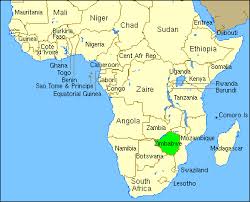 I had the good fortune of catching this incredible documentary last night. It provided perspective that was desperately needed, as I have been struggling with the thought of “home” recently. (You may remember that I’m a New Yorker who is now living in North Carolina – in the Southern part of the US.)
I had the good fortune of catching this incredible documentary last night. It provided perspective that was desperately needed, as I have been struggling with the thought of “home” recently. (You may remember that I’m a New Yorker who is now living in North Carolina – in the Southern part of the US.)
So let’s talk about home for a moment. Most of us have one, right? Sometimes it is where we grew up and sometimes it is thousands of miles away. Some of us immigrated to a new country and now call it home. Some of us grew up as TCKs and don’t quite know where home is at times.
Last week, I wrote this. I had no idea how seeing the documentary “Mugabe and the White African” would make my “plight” seem so relatively ridiculous:
I’ve lived away from home for three years now.
When I return home, my internal GPS kicks in and I just know.
Know where to go.
Who will be there.
What they’ll be like.
Away is a daily adventure. Fun at times, yes, but, I’m ready for the roller coaster ride to be over.
Home is home.
It is where my heart is.
It is time.

How silly it now seems to be missing home so much! I can get in a car and be there in 9 hours. I do not have to worry about someone preventing me from traveling there, beating me for trying to go there or taking my “home” away from me. However, farmers in Zimbabwe do have to worry about these things. Specifically, white farmers in Zimbabwe have to live with this daily fear. This is the central focus of the documentary about a very brave white Zimbabwean man named Mike Campbell who fought tirelessly for his right to keep his legally purchased farm, despite being born white.
What does being white have to do with it?
Time for a quick history lesson: Zimbabwean President, Robert Mugabe, instituted land reform that dismissed white farmers’ land rights, regardless of whether they had legal deeds to the land which they farm and whether or not they employ hundreds of locals. Mugabe claims that the land is being “redistributed to the poorest in Zimbabwe,” however court records clearly illustrate that 95% of the farming land has been gifted to government officials, girlfriends of those in power, and other kin who are supporters of the regime.
White Zimbabwean, Mike Campbell, and his British son-in-law, Ben Freeth, (as well as their extended families) took President Mugabe to the SADC Tribunal court in Namibia to challenge Mugabe’s racist change in public policy. After years of fighting, the court finally heard their case and they won. However, their fight had only just begun. Mugabe’s regime ignored the legal decision and has continued to pursue the land of white farmers, opting to beat these legal residents and their employees to near death at times. In a land with no rule of law, the white farmers continue to live in daily fear of physical and mental abuse. Some have been forcibly removed from their homes and farms with no recourse.

For them, home is Zimbabwe, regardless of why or how their white ancestors arrived there.
Despite the legal win in court, the Campbell and Freeth families formed the Mike Campbell Foundation which aims to:
– Help restore the rule of law, notably in the devastated Zimbabwean commercial farming sector where many of the original farm workers and their families (1.7 million people in 2000) are struggling to survive.
– Restore the SADC Tribunal, in partnership with the UN Human Rights Committee, the Elders Group, the African Commission on Human and People’s Rights and the African Court.
– Raise awareness of Zimbabwe’s plight throughout the Southern African region and the world via speaking tours, media and government outreach.
– Sponsor displaced and destitute farmer workers on conservation courses.
This painful documentary shares a reality that is not very visible in the news in most of the world. It provides an outstanding example of the struggle for human rights and how policy decisions can negatively impact locals that they claim to help. Finally, it was a humble personal reminder of all that I have to be grateful for; Home is there and I can go when I want without fear for my or my family’s life.
I highly recommend that you check out this incredible documentary along with the Mike Campbell Foundation. Both are terrific teaching tools, appropriate for high school and college level students.
Here is the trailer for the film: https://www.youtube.com/watch?v=bNpBM1APaL0

